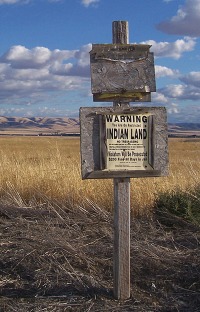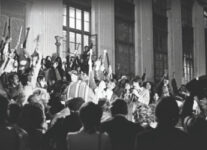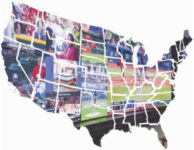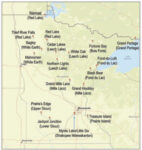
When Woody Guthrie penned that iconic song, his intent was certainly not to exclude anyone, but give everyone a stake in what happens to the United States. His evocative lyrics brought together a sense of belonging for nearly all Americans.
Except perhaps for one group: the first Americans.
Yes, “this land is your land” but too often we forget who the land belonged to originally. From the $24 worth of trinkets for Manhattan to the “Trail of Tears” across the South, land from “the redwood forests to the gulf stream waters” was ripped from Native Americans in a way that can only be looked back upon with shame.
But those were different times, they tell us. Now, Native American land claims are handled in a more equitable and realistic manner.
If that is the case, however, how do you explain the recent Carcieri v. Salazar case by the Supreme Court? While some argue that the scope of the decision is limited to the Narragansett tribe and 32 acres of trust land in Rhode Island, the truth is that it has had much wider implications even before other land-into-trust circumstances get tested in other courts.
Some tribes have had to cancel projects scheduled to be built on trust land. Other casinos already on trust land are threatened with closure.
Congress will undoubtedly consider remedies to this unfair decision, but until then, Native Americans are once again questioning the wisdom and integrity of the U.S. government as it applies to land that they once wholly owned.
So it’s important to remember the last two lines of Guthrie’s song and how they may apply, once again, to Native Americans:
“And some are grumblin’
and some are wonderin’
If this land’s still made
for you and me.”










